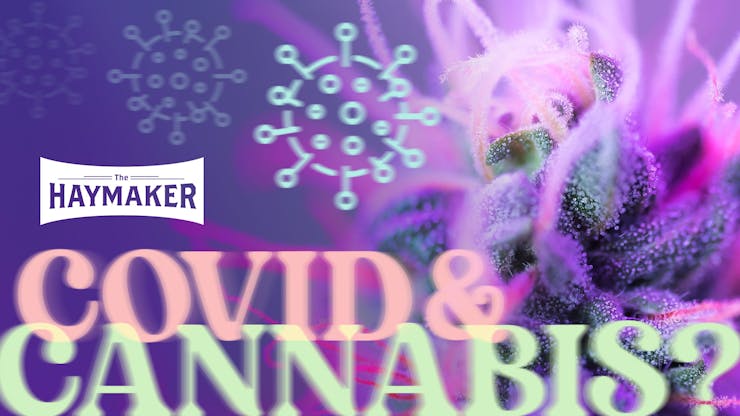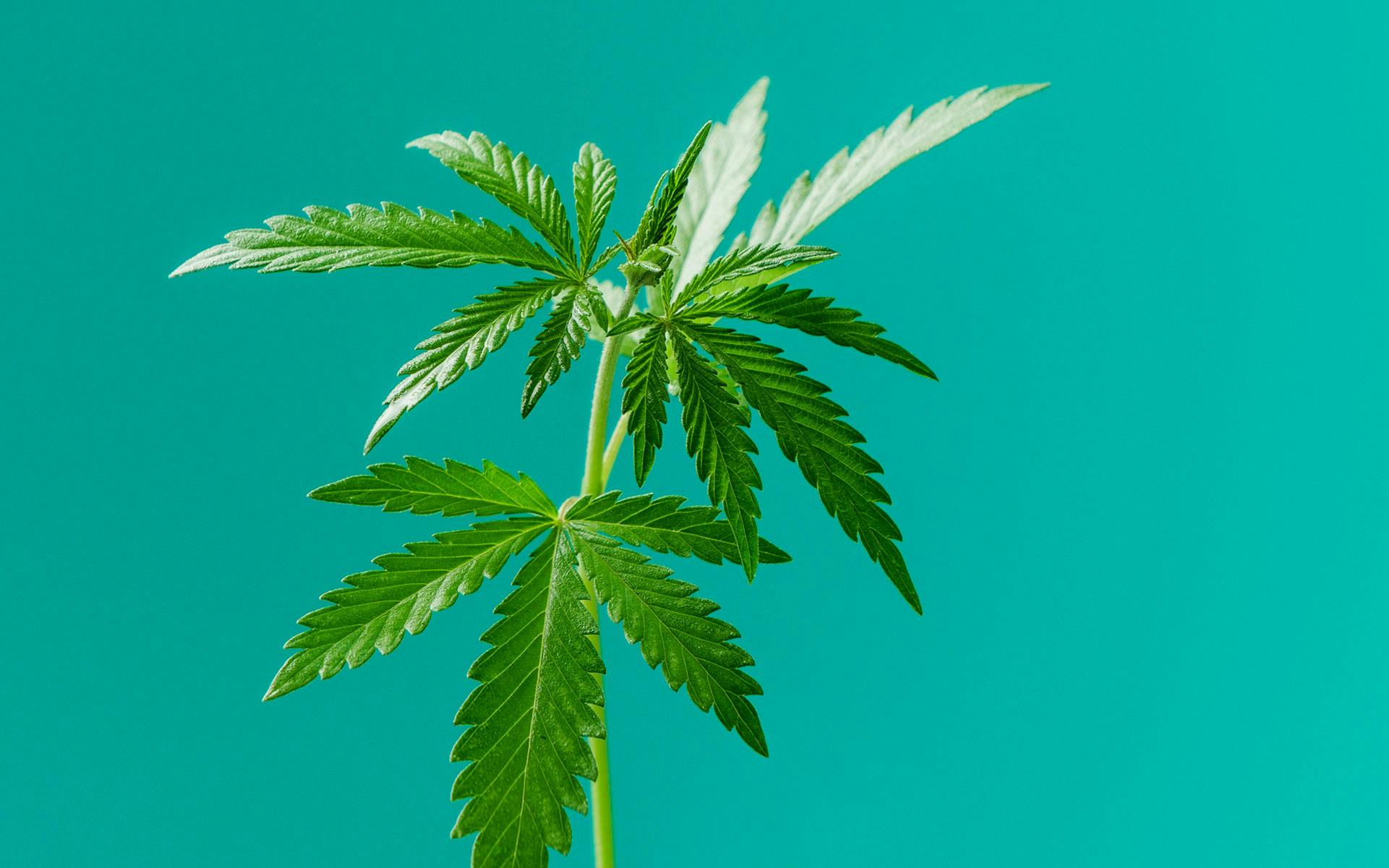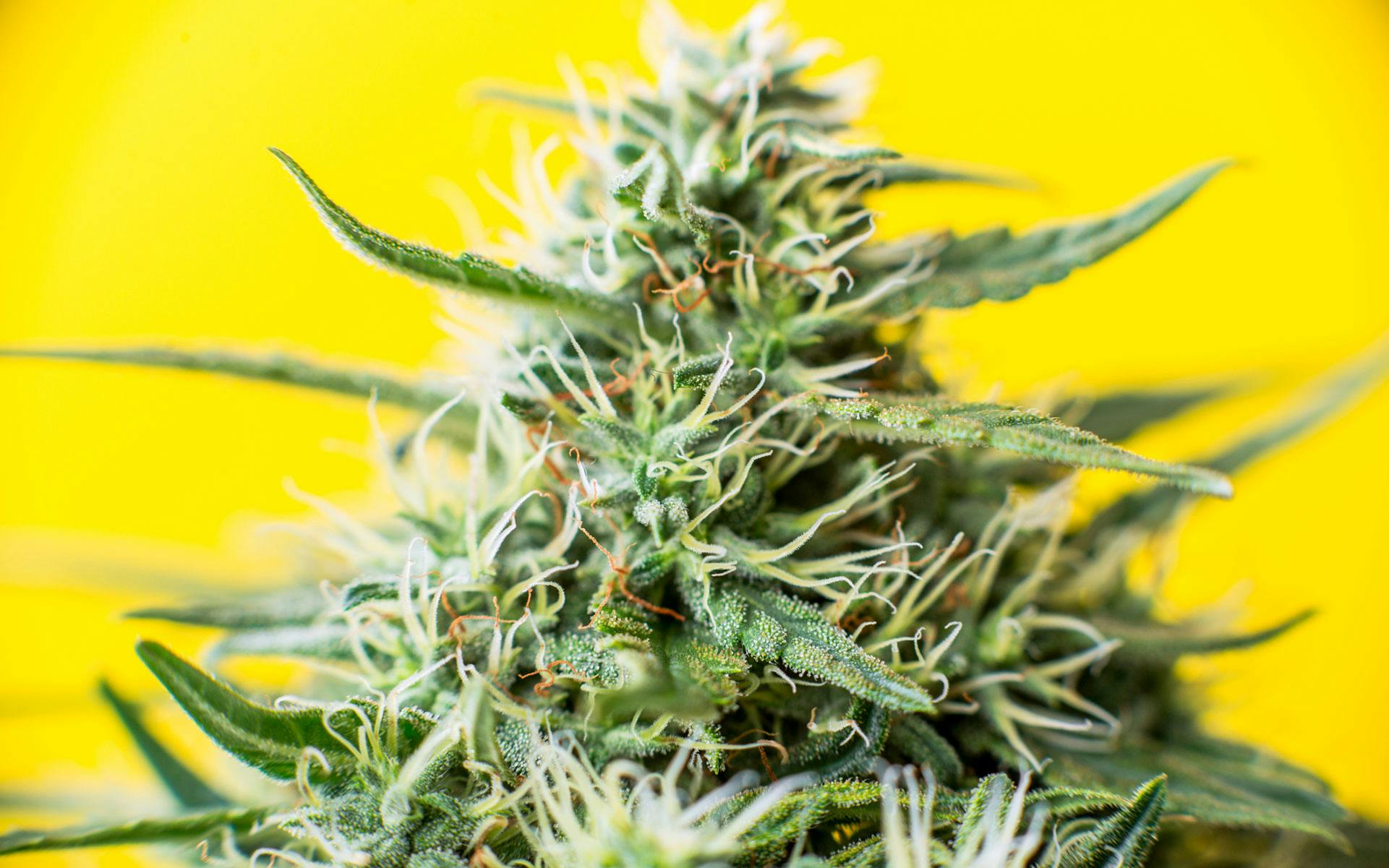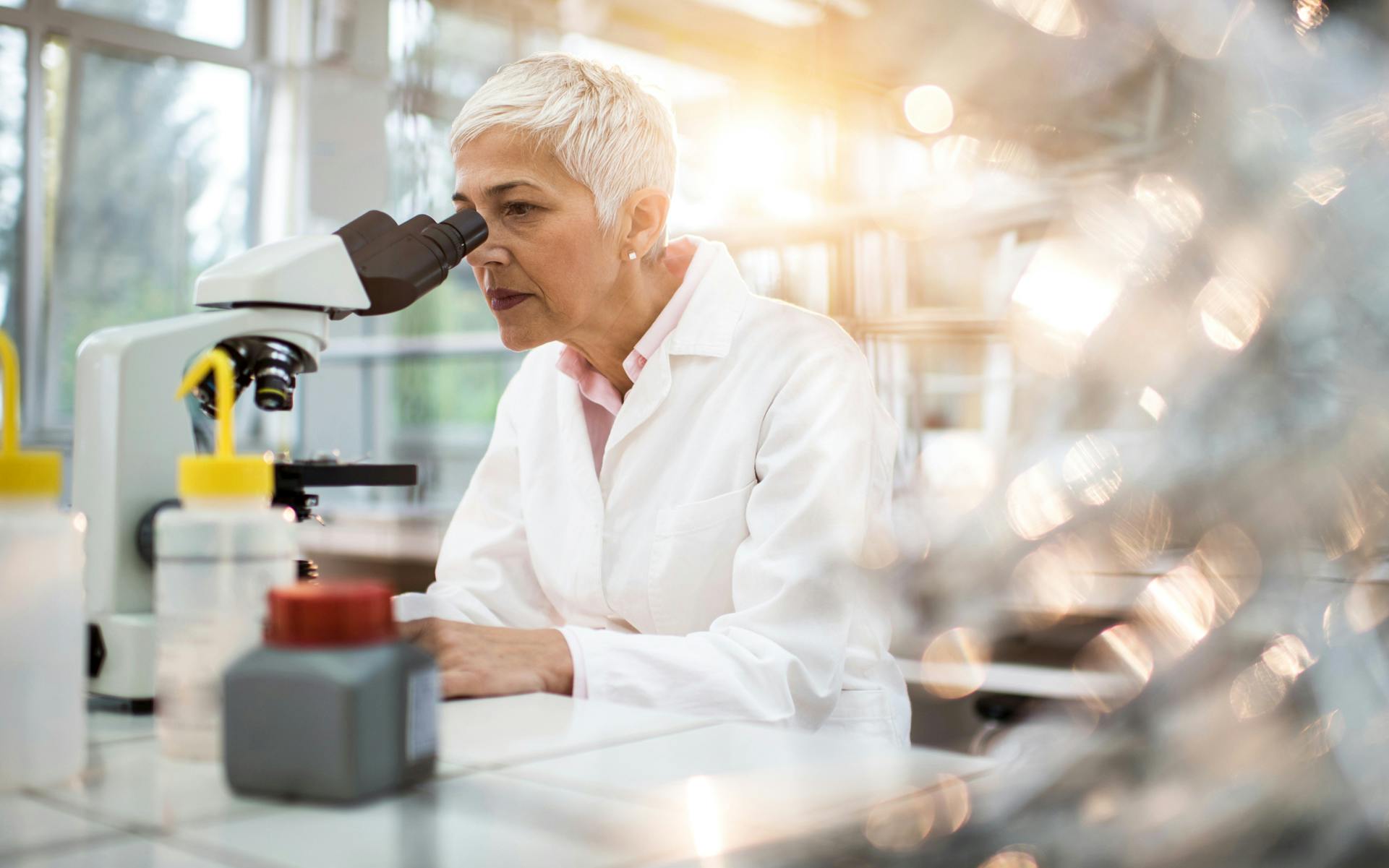Pump the brakes before cannabinoids become the next Ivermectin.
The Haymaker is Leafly Senior Editor Bruce Barcott’s opinion column on cannabis politics and culture.
A scientific study published on Monday in the Journal of Natural Products sent shockwaves through the cannabis industry—and in the space of 48 hours went from miracle cure to late-night comedy fodder.

Here’s the fact: A team of researchers from Oregon State University and the Oregon Health & Science University reported that CBDA and CBGA inhibited the reproduction and spread of the Covid-19 novel coronavirus in early in vitro lab tests.
CBDA and CBGA are the raw forms of CBD and CBG. Both can be derived from federally legal hemp.
The researchers found that these specific cannabinoids discouraged the Covid-19 protein from penetrating human cells. At certain levels of potency, CBDA and CBGA were able to reduce viral infections—in a petri dish—by half. The concentrations of CBDA or CBGA needed to block infection in actual humans by half “is high,” wrote the authors, “but might be clinically achievable.”
By Wednesday night, comedy writers had turned CBD into the next Ivermectin. This morning the New York Times comedy roundup included these gems:
“This would be interesting. All this time we’ve been listening to the C.D.C., we should have been eating CBD.” — Jimmy Kimmel
“You know, it’s funny — all these crazy cures, I’m like ‘Oh, that’s ridiculous.’ Ivermectin, the horse dewormer; bleach. And then somebody says marijuana prevents Covid, I’m like ‘Oh, really? Do tell.’” — Jimmy Kimmel
“In other words, the pot enters the body and asks Covid, ‘Are you a cell? You have to tell me if you’re a cell.’” — Stephen Colbert
That escalated quickly
And thus, with the help of Stephen Colbert, an obscure lab test involving CBDA has become, in the mind of the general public, “pot cures Covid.”
Is the Oregon study exciting news? Sure. But hang on. Before you start freebasing CBD gummies , sit down and consider the full context of this news.
This wasn’t actually tested on people
First, understand what the researchers found and what they did not find.
According to the published article, this wasn’t a study of the scope you might be assuming. No humans were involved. The potential of CBDA to block the production of Covid-19 cells hasn’t even been tested on lab mice.
Shop highly rated dispensaries near you
Showing you dispensaries nearThe Oregon researchers ran the known properties of CBDA and CBGA through a commonly used computer model. In other words, they matched the cannabinoids up against Covid-19 in a computer simulation.
After those results showed promise, the Oregon team conducted cell infection assays. In other words, they mixed live samples of the Covid-19 virus with CBDA, CBGA, or a neutral control in petri dishes. After 24 hours, the researchers found that the Covid-19 virus had reproduced at a significantly lower rate in the CBDA and CBGA samples.
THCA: Promising too
Here’s an interesting side note: The Oregon researchers reported that THCA, the raw form of THC, showed similar promise in their computer model. But because THCA is a federally illegal substance, and the scientists must abide by federal research funding rules at their institutions, they couldn’t move forward and test actual THCA in cell assays. THCA may be just as promising as CBDA and CBGA, but we don’t know because of federal marijuana prohibition.
The key word here is promising. Not proven. And even the word promising is a stretch. In scientific terms, the Oregon study is interesting—these findings are meant to spur further research, perhaps using lab mice. We’re miles away from studies that test the effectiveness of these cannabinoids in actual humans.
Of course, we don’t live in a normal world. We’re in the middle of a global pandemic. Here in the United States, the right-wing hysteria machine has championed quackadoodle cures like Ivermectin and hydroxychloroquine while ridiculing the scientifically proven Covid-19 vaccine.
We’ve seen this before
The Oregon study opens up great potential but also enormous risk. There’s risk to public health, as people who might otherwise get vaccinated instead start chugging CBDA oil. And there’s the risk that the very real promise of cannabinoid medicine could get lumped in with Ivermectin and hydroxychloroquine, and be written off as just another overhyped and ineffective miracle cure.
I’m reminded of the long-running debate over the potential of cannabinoids in the fight against cancer. There are those who champion high-dose cannabis, often in the form of Rick Simpson Oil (RSO), as a powerful cancer-fighting medicine. But some of the world’s leading cannabinoid researchers, Dr. Donald Abrams and Prof. Manuel Guzmán, pumped the brakes on the “cannabis cures cancer” talk back in 2020 in JAMA Oncology, one of the world’s most prestigious peer-reviewed cancer journals.
Abrams and Guzmán didn’t dismiss the promising ongoing studies on cannabinoids and cancer, some of which are being conducted by Guzmán’s own lab. But the two scientists have learned, over decades of hard experience, that what proves promising in the lab doesn’t always pan out in actual human beings. I spoke directly with Donald Abrams about this two years ago.
“Things that happen in vitro, [i.e., in a lab dish], don’t necessarily translate into potential clinical benefits,” Abrams told me. “Taking cells in culture and adding chemicals to them is very different than digesting something in the human body. Humans have a digestive system, detoxification systems, and an immune system.” All of those things contribute to the interaction of a drug, the body, and cancer cells, Abrams said. “It’s much more complex than what you see in the test tube.”
Abrams has also seen the downside of overhyped and unproven cures. As an integrative oncologist in San Francisco, he sometimes encounters patients who have abandoned conventional cancer treatment in favor of a cannabis cure.
“I see patients who often have waited months to get an appointment with me,” Abrams said. “One of the most painful things I have to deal with are people who have a potentially curable malignancy who choose to forego conventional cancer treatment and instead choose to try to treat themselves with highly concentrated oils with either THC, CBD, or both.”
Sure, try CBD—and the vaccine
Buyer beware. The Oregon study should lead to more studies of the potential for cannabinoids—including CBDA, CBGA, and THCA—to prevent the spread of Covid-19 at the cellular level. But it shouldn’t lead you to forego a proven vaccine in favor of CBDA oil.
By all means, order up a supply of CBDA if you so choose. But don’t be one of those patients who disappoints Dr. Abrams by sabotaging their own survival. Get vaccinated too.








